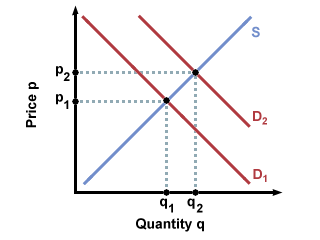"...a 1971 paper by Robert Trivers demonstrated how reciprocal altruism can evolve between unrelated individuals, even between individuals of entirely different species. ... Trivers' theory is very powerful. Not only can it replace group selection, it also predicts various observed behavior, including moralistic aggression, gratitude and sympathy, guilt and reparative altruism, and development of abilities to detect and discriminate against subtle cheaters."
If you're still stuck in the mindset that evolution is mainly about competition and you think that the "law of the jungle" is the same things as the "survival of the fittest," then I encourage you to read through the excellent wiki entry I linked to for the above quote. If, however, you're already on board with with this whole cooperation thing (i.e. cooperating with cooperators), then we can move on to this week's thought experiment.
--------------------------------------------------
Eleanor was delighted with her new broadband connection. Having been used only to dial-up, she loved the fact that now her internet connection was always on, and also that surfing and downloading was so much quicker. And it was a bonus that it happened to be completely free.
Well, to say it was free was perhaps a little misleading. Eleanor paid nothing for the service because she was using her neighbour's WiFi connection, otherwise known as a wireless Local Area Network. This enabled any computer within a limited range, as long as it had the right software and hardware, to connect without cables to a broadband internet connection. It so happened that Eleanor's apartment was close enough to her neighbour's for her to use his connection.
Eleanor didn't see this as theft. The neighbour had the connection anyway. And she was only using his excess bandwidth. In fact, a neat piece of software called Google Magpie made sure that her use of the connection never slowed her neighbour down by more than a negligible amount. So she got the benefit of his connection, but he didn't suffer as a result. What could be wrong with that?
Baggini, J., The Pig That Wants to Be Eaten, 2005, p. 244.
---------------------------------------------------
Baggini does a good job here of defining Eleanor's behavior in such a way that it's not a straightforward case of outright theft from her neighbor. And this is because Baggini is really trying to get us to consider the free rider problem. Although this problem was first used in economic theory, it has been extended to describe issues in collective bargaining, antitrust law, psychology, political science, and biological evolution, so it's a very important concept to understand. Since this thought experiment is only about the problematic use of an economic good, I'll mostly confine my discussion to that field, but other applications should be obvious from this.
In economics, the free rider problem occurs "when those who benefit from resources, goods, or services do not pay for them, which results in an underprovision of those goods or services. ... The free rider problem is common among public goods. These are goods that have two characteristics: non-excludability—non-paying consumers cannot be prevented from using it—and non-rivalry—when you consume the good, it does not reduce the amount available to others."
Did you get that? While those two characteristics of economic goods are vital to understand, and the definitions of non-excludability and non-rivalry seem easy enough to follow, I find that they are best grasped when looked at in this 2x2 matrix:
So, as described in this thought experiment, the internet connection is acting as a public good. Baggini ended the experiment saying, "she got the benefit of his connection, but he didn't suffer as a result. What could be wrong with that?" The answer to this leading question is obvious, however, when you use economic tools to show what is really happening in free rider situations. Take a look at the supply and demand curves below.
- Be nice: cooperate, never be the first to defect.
- Be provokable: return defection for defection, cooperation for cooperation.
- Don't be envious: focus on maximizing your own 'score', as opposed to ensuring your score is higher than your 'partner's'.
- Don't be too clever: or, don't try to be tricky.
Such advice for the game of life works well in small tribes where everyone has a chance to repeatedly interact with one another. But in large anonymous modern societies, "government is the primary agency that societies utilize to address the free rider problem. Practical tactics include compulsory participation (taxation) or a form of regulation, and linking the public good to a desirable private good (getting people to pay voluntarily). Governments have imposed taxes when not enough people have voluntarily paid for a public good or service, and some governments have turned a public good into a private one."
Of course, governments haven't been perfected yet. (Go ahead. Take a moment to laugh at that understatement.) And this is why when I wrote about The Purpose of Government, I noted:
We will never do away with the evolutionary history we have inherited, which leaves us vulnerable to strong urges to compete. For that alone, government will always be required to take care of the protection from and punishment of cheaters. However, we also know through the study of economics and its definitions of terms like public goods, private goods, natural monopolies, tragedies of commons, externalities, perfect competition, and information asymmetry, that even if every individual was committed to cooperating with their fellow citizens, there would still be things that we need centralized and collective action to address. We know that the invisible hands of the market will lead to market failures if they are left to act on their own. This essentially is the modern reason we have government - to efficiently do for the group what we cannot do acting alone.
This is also why I wrote in my guiding principles of political philosophy that:
The purpose of government is to regulate the economic system by correcting market failures in order to best ensure the long-term survival of the species. Different strategies are required for the markets of different types of goods. Public goods (non-excludable, non-rivalrous) such as national defense, justice, and public utilities must be highly regulated or provided by government. Common goods (non-excludable, rivalrous) such as air, water, fish stocks, and timber must be protected for long-term sustainability. Club goods and private goods (both excludable) should be regulated towards perfect competition, which ensures maximum benefits for consumers. The six characteristics of perfect competition are: 1) many suppliers with an insignificant share of the market; 2) identical output produced by each firm; 3) consumers with perfect information about goods and prices; 4) all firms have equal access to resources and technologies; 5) there are no barriers to entry or exit in the long term; 6) there are no externalities in production or consumption of the goods.
I've intended for these principles of government to be applied at global levels for global problems and then cascaded down through all smaller levels of government until you get truly local problems taken care of by only local governments. But since I wrote my first draft of Evolutionary Philosophy, I've also learned about the economist Elinor Ostrom who won a Nobel Prize for her research into how various groups have been able to solve free rider problems and avoid tragedies of the commons with or without formal government. She identified eight "design principles" for what she called the stable management of common pool resources (CPRs). They are:
- Clear definition of the contents of the common pool resource and effective exclusion of external un-entitled parties;
- The appropriation and provision of common resources that are adapted to local conditions;
- Collective-choice arrangements that allow most resource appropriators to participate in the decision-making process;
- Effective monitoring by monitors who are part of or accountable to the appropriators;
- A scale of graduated sanctions for resource appropriators who violate community rules;
- Mechanisms of conflict resolution that are cheap and of easy access;
- Self-determination of the community recognized by higher-level authorities; and
- In the case of larger common-pool resources, organization in the form of multiple layers of nested enterprises, with small local CPRs at the base level.
This is fantastic research and the best governments do mimic these principles. They are very important for true commons, and I really wanted to touch on all of these facets of the free rider problem. But really, this is all a bit of overkill for a WiFi signal, isn't it? Imagine the difficulty in setting up local collective-choice arrangements, effective monitoring, and graduated sanctions to deal with Eleanor. In fact, the much easier solution to this thought experiment is for all neighbors to simply lock their WiFi routers behind a password, which would change their connections from a public good into a club good, i.e. it would then be excludable like a private park or satellite television. This is exactly what we see in most situations, which means the free riders have been thrown off and everyone chips in for cheaper internet connections all around.*
* Fine print: Your price may vary depending on your government's other regulations concerning the natural monopolies of phone lines and cable lines, or the de facto monopolies that arise due to over-consolidation in the marketplace.




